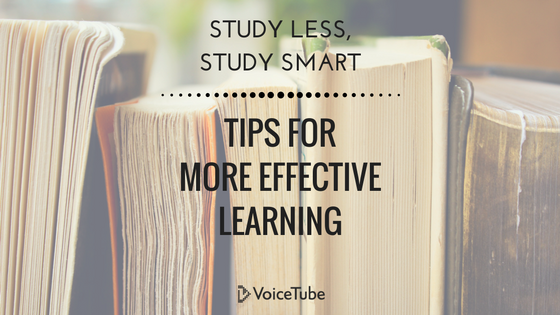Do you feel like your study methods are inefficient and do not bring you good results?
Here are some tips for a more effective learning strategy, so you can optimize your studies and make the most of your time!

Have you ever heard an older person saying something like “Kids these days don’t know how to study…”? We’ve all heard parents and grandparents compare their study habits with ours, and they usually talk about a time when teachers were much stricter and memorization was the norm. More importantly, they talk about a time when people were able to focus.
Nowadays, they say the attention span of younger generations has decreased to the point that even a 1-hour lecture seems to be a great challenge. With so many things to distract us – smartphones and the internet being on top of the list – it is easy to see that our attention span has indeed been reduced. But what can we do when we absolutely need to pay attention, like in a university lecture?
Study Less, Study Smart
It was precisely thinking about this that former Psychology Professor Marty Lobdell came up with his valuable tips on how to create a more effective learning environment. Ironically, this being the age of short attention spans, most students couldn’t finish watching Prof. Lobdell’s video; it was a 60-minute lecture, and therefore considered “too long”.
No one seems to have time these days, and if they do, it’s very hard to get them to focus on one single activity for long. We know that this may be the case with many of our younger readers, so here’s a 6-minute summary of Professor Lobdell’s tips from College Info Geek:
The first tip is also the most important one: instead of trying to force yourself to study the same subject for long periods of time, try to use the 30+5 technique, with 30 minutes of studying followed by a 5-minute break.
What else can I do for a more effective learning experience?
Apart from all these tips, you can also follow our suggestions for more effective learning:
1. Get disconnected
Put your phone on mute and away — literally away from your reach. Hide all your devices. Yes, including your tablet, your smartwatch, your laptop, etc., as they are all potential distractions. If you are worried about losing track of time, get a kitchen timer and set it for each 30-minute study session. If you’re in a library, make sure to find a seat from where you can see the clock on the wall.
2. Eat something, but don’t overeat
No one likes studying on an empty stomach so you should certainly eat something before you begin. But eating something does not mean eating too much! Overeating will make you feel sleepy and lethargic. Feeling hungry in between study sessions? Healthy options like fruits and nuts are a great snack to have during your 5-minute breaks.
3. Read about something you love
OK, so reading a long academic text about a scientific topic might not be your all-time favorite activity. But reading is a big part of learning, and it’s essential for making the most of your independent study. How can we read a boring text and not fall asleep?
Research shows that recreational reading — that is, reading for fun — can be really beneficial. It lets you exercise your imagination as well as improve your cultural knowledge, social skills and, of course, your literacy level. So while we cannot change the content of boring and compulsory academic text, we can and should improve our skills by reading other texts.
Before starting your study routine, try to spend 20 minutes of your time reading something you are truly passionate about. Do you like Japanese cuisine? Read about it before diving into that essay text you need to summarize. Are you a big fan of coffee? Read about it before opening your textbook. You will see that recreational reading can help you get in the mood for study.
4. Studying English? Practice, practice, practice!
Finally, here’s a tip for those studying English: learning the theory might be essential, but nothing will be more valuable than the knowledge and experience you’ll get by practicing the language — not only speaking and listening, but also writing.
Need a place to practice all of these skills? Download the VoiceTube app right now (available on Android, iOS as well as the Web) and join our speaking challenges, forum discussions and more!
